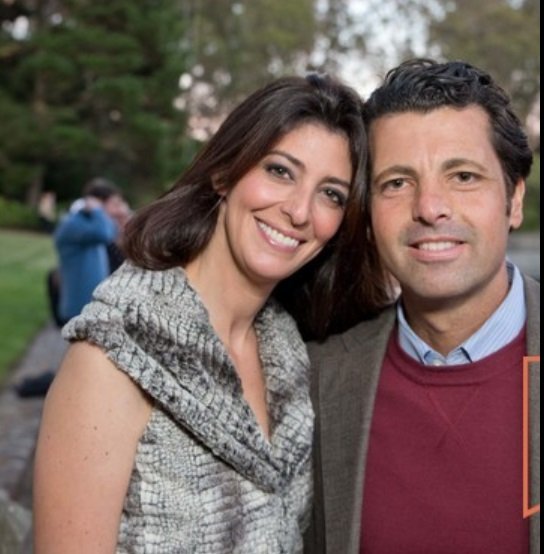In a world bustling with activity and noise, it’s often the subtle whisper of poetry that brings us back to ourselves, connecting us with emotions and experiences that lie deep within. One such voice that resonates with this subtle power is that of J. Hope Stein, a poet whose work has been quietly making waves in the literary world. This article shines a light on Stein’s poetry, exploring the themes, style, and impact of her work.
Who is J. Hope Stein?
J. Hope Stein is a contemporary poet known for her evocative language and the ability to capture profound human experiences with simplicity and grace. Her poetry often delves into the intricacies of life, love, and the often unnoticed moments that shape our existence. With a unique voice that is both tender and powerful, Stein’s poems leave a lasting impression on their readers.

A Look at Stein’s Published Work
Stein’s body of work includes several published collections that have garnered attention for their introspective and innovative approach to poetry. Her collections are a testament to her skill in weaving together words that speak to the universal human condition while maintaining a distinctive personal touch.
Themes in J. Hope Stein’s Poetry
J. Hope Stein’s poems touch on a variety of themes that are both timeless and timely. Her work often reflects on the nature of relationships, the complexities of womanhood, and the interplay between the personal and the political. Let’s explore some of the recurring themes in her poetry.
The Intimacy of Relationships
In her work, Stein examines the intimate spaces between people—spaces filled with love, tension, and everything in between. She captures the nuances of relationships with an honesty that can be both comforting and unsettling, asking her readers to confront the reality of their connections with others.
The Personal as Political
Stein’s poetry does not shy away from the political. She deftly uses personal narratives to comment on larger societal issues, bringing to light how the personal is, indeed, political. Her work prompts readers to consider their place in the world and the impact of their actions.
Explorations of Womanhood
Stein’s exploration of womanhood is both a celebration and an interrogation. Through her poems, she explores the joys, challenges, and contradictions of being a woman in contemporary society, often questioning traditional roles and expectations.
The Style of J. Hope Stein’s Poetry
Stein’s poetic style is characterized by its accessibility and depth. Her verses are crafted with careful attention to rhythm and sound, creating a musicality that enhances the emotional weight of her words.
Language and Imagery
Stein’s use of language is both precise and evocative. Her imagery is often drawn from nature and everyday life, creating a tapestry of visuals that support the thematic content of her poems.
Form and Structure
While Stein is known for her free verse, she also experiments with form and structure, sometimes employing traditional poetic forms to new ends. Her structural choices are always in service of the poem’s message, demonstrating her versatility as a poet.
Impact and Reception of J. Hope Stein’s Work
The impact of J. Hope Stein’s poetry can be seen in the way her work resonates with a diverse audience. Her poems have been praised for their emotional resonance and intellectual depth, earning her a place among the noteworthy poets of her generation.
Critical Acclaim
Stein has received critical acclaim for her contributions to contemporary poetry. Her work has been featured in various literary journals and anthologies, and she has been recognized with awards and honors that speak to her talent and influence as a poet.
The Role of J. Hope Stein in Modern Poetry
As a voice in modern poetry, Stein stands out for her ability to speak to the human experience in a way that is both personal and universal. Her poetry offers a window into the soul, inviting readers to reflect on their own lives and the world around them.
J. Hope Stein’s Influence on Readers
Stein’s poetry has the power to move readers, to make them feel seen and understood. Her words can comfort and challenge, often leaving a lasting impression on those who encounter them.
Personal Reflections from Readers
Many readers have shared personal reflections on how Stein’s poetry has touched their lives. From finding solace in her words during difficult times to being inspired to see the world in a new light, the influence of her poetry is evident in the stories of those who read her work.
Exploring J. Hope Stein’s Poems
To truly appreciate the depth of J. Hope Stein’s poetry, one must dive into her poems. Here, we’ll take a closer look at a few of her pieces, examining the themes, style, and emotional impact of her writing.
A Selection of Poems
In this section, readers would be presented with a selection of J. Hope Stein’s poems, each accompanied by a brief analysis that unpacks the layers of meaning and the craft behind the words.
Conclusion: The Enduring Power of J. Hope Stein’s Poetry
J. Hope Stein’s poetry captures the complexity of the human experience with a clarity and beauty that is both rare and impactful. Through her exploration of relationships, personal and political narratives, and the nuances of womanhood, Stein invites readers to engage with her work on a deep and personal level.
Her style, characterized by its musicality and rich imagery, makes her poetry accessible while still offering layers of meaning to uncover. As her poems continue to resonate with readers around the world, the enduring power of J. Hope Stein’s voice is undeniable.
Whether you are a long-time fan or a newcomer to her work, the poetry of J. Hope Stein offers a profound and moving journey through the landscapes of the heart and mind. It is a journey well worth taking.
In the end, the true magic of J. Hope Stein’s poetry lies in its ability to connect us—to ourselves, to each other, and the world at large. In a time when connection is more important than ever. Her words offer a balm for the soul and a reminder of the beauty that exists in the simple act of being human.





